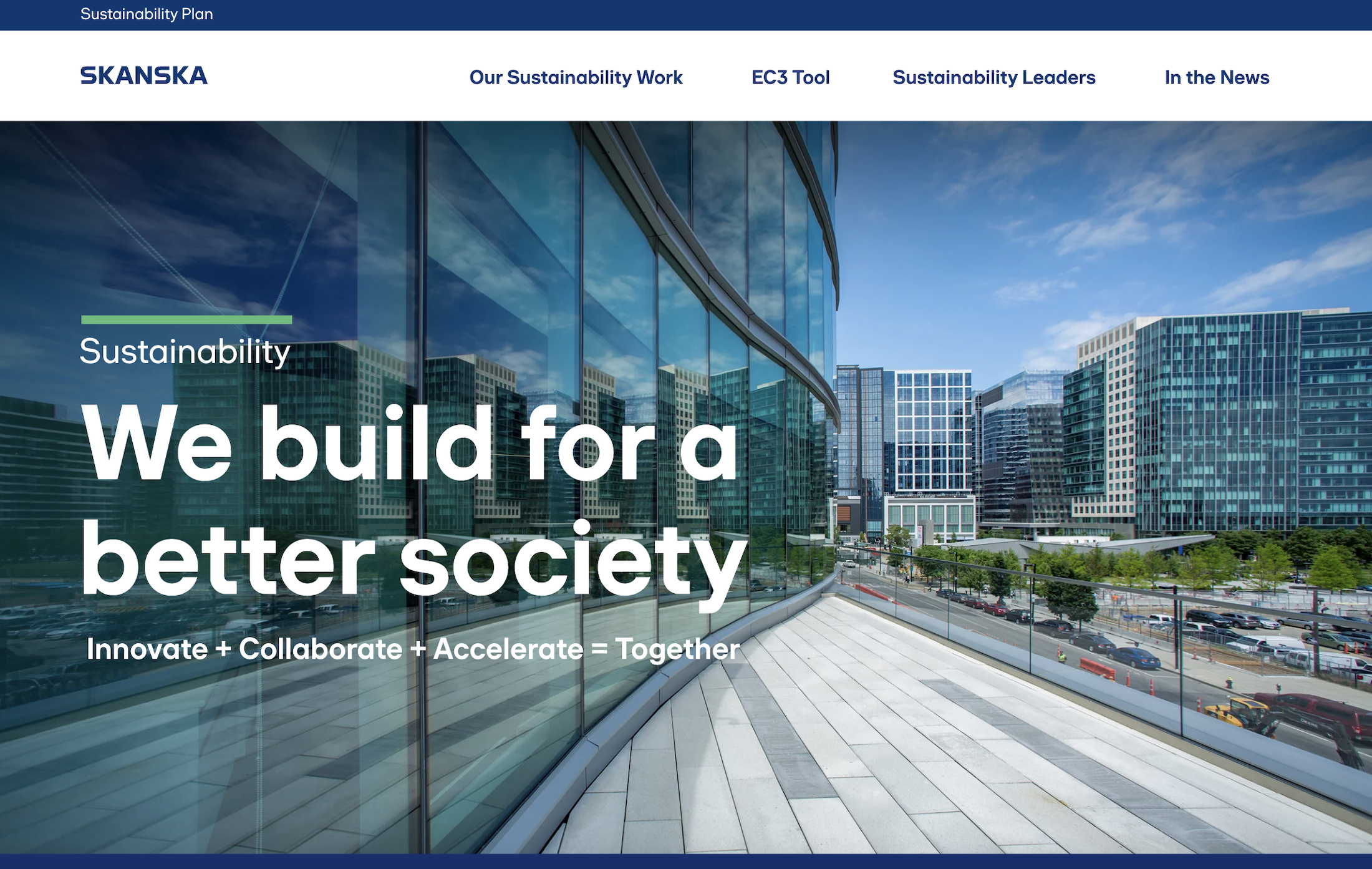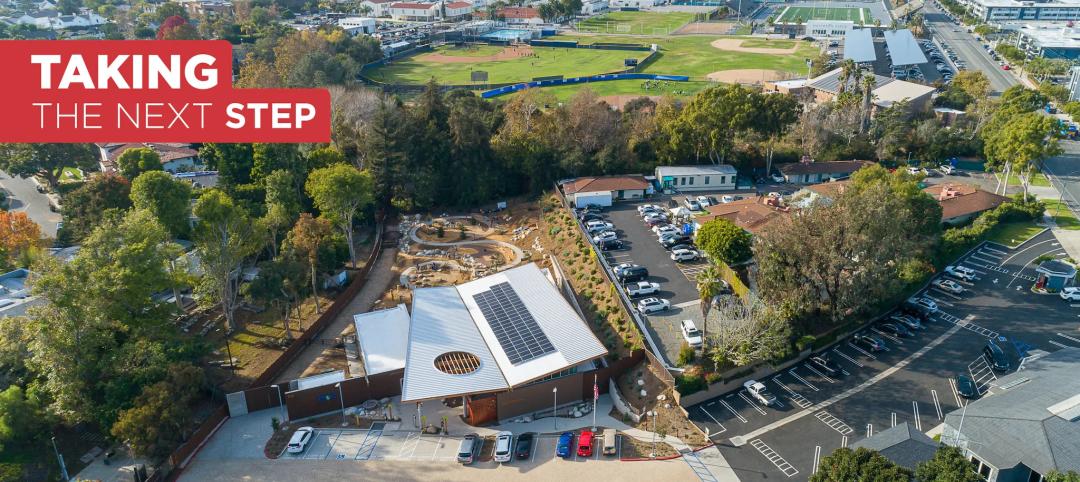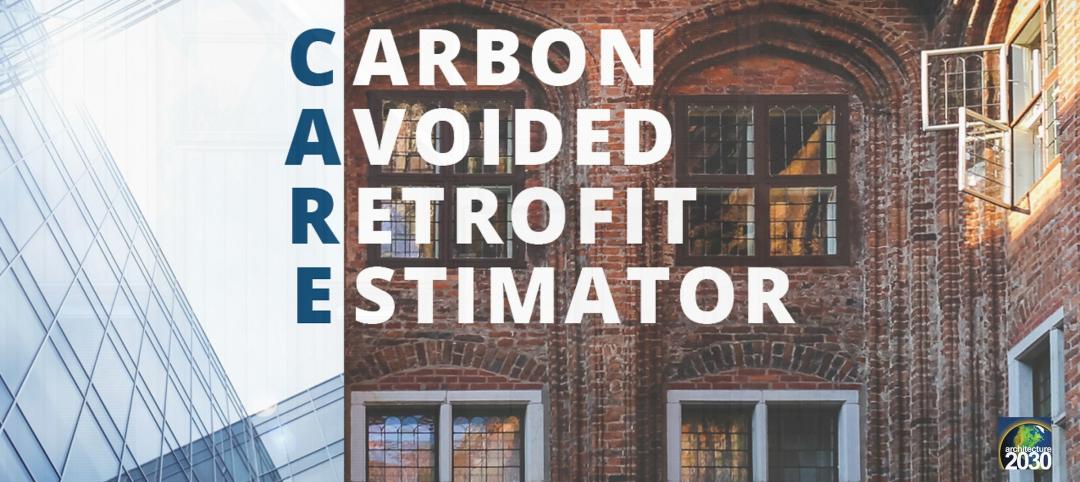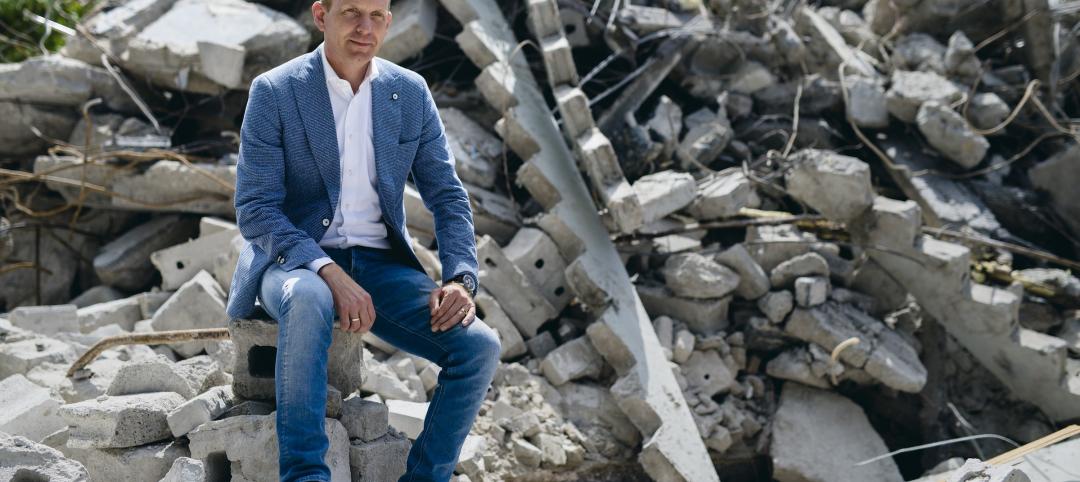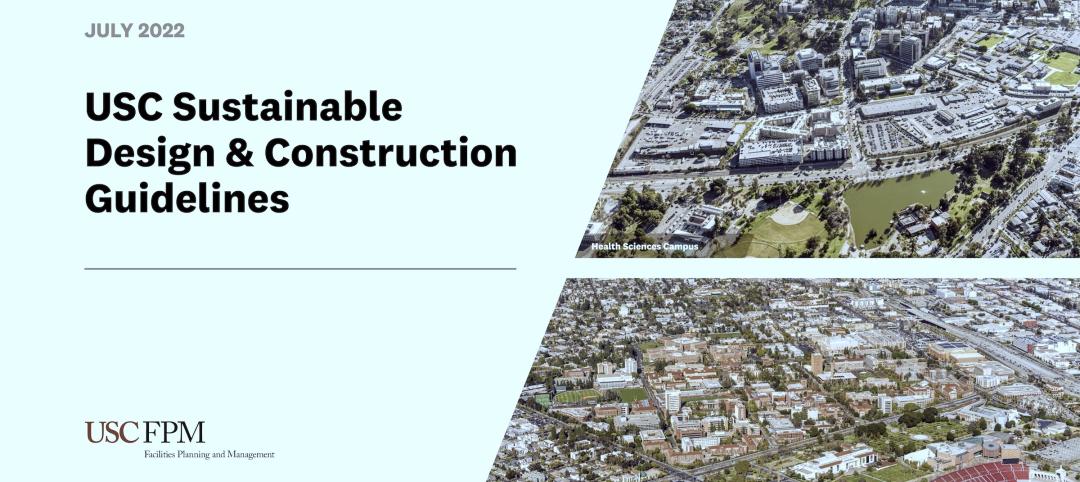Skanska, a global leader in sustainable building, has restructured its Sustainability Team to better serve client and company goals. Co-led by Steve Clem and Myrrh Caplan, who together bring decades of experience, the team will allow Skanska to continue to set the bar for the industry.
“Steve and Myrrh are central to our commitment to sustainability,” said Steve Stouthamer, Executive Vice President, Project Planning, Skanska USA Building. “As Senior Vice Presidents, they’ll leverage Skanska’s global and domestic initiatives to protect our environment and ensure the resilience of the communities we build in. By harnessing their collective expertise, we can make significant strides toward our decarbonization goals while continuing to set the bar for sustainable industry practices.”
With Clem and Caplan at the helm, Skanska is well positioned to support clients and maximize opportunities for sustainability consulting, as state and federal agencies implement stricter sustainability requirements for buildings and construction. Skanska’s robust Sustainability Team, located throughout the country, will continue supporting Clem and Caplan with helping clients meet and exceed their sustainability goals, advancing industry and client outcomes through innovation and research, and identifying opportunities to create more value-add solutions.
Since joining Skanska as a Project Manager in 2005, Caplan has helped shape Skanska’s national approach to sustainable building. She established the company’s first national Green Construction program and chaired Skanska’s first National Green Council. Throughout the past decade, she has managed multiple initiatives including carbon lifecycle analysis and efforts that benefit clients and the industry. Caplan leads Skanska's National Sustainability Team, made up of consultants and advisors.
Caplan was named a 2022 LEED Fellow by the U.S. Green Building Council (USGBC), one of twenty professionals from around the world recognized for their work in advancing green building practices. To date, Caplan has advised on nearly 300 certified projects and projects seeking LEED, Living Building Challenge, WELL, Envision, and other certifications. In 2023, Caplan co-created the Associated General Contractors of America Task Force on Decarbonization and Carbon Reporting to address the challenges around reporting and reducing carbon emissions within construction. She sits on the board of mindfulMaterials, serves on several industry committees, and participates in research with key partners.
Steve Clem joined Skanska as a project engineer in 1997 and over the years, established himself as one of Skanska’s staunchest sustainability leaders. In his role, Clem is responsible for setting and achieving Skanska’s decarbonization goals in the United States and works with construction teams to identify sustainable procurement solutions for clients including the use of mass timber. Clem’s efforts to reduce the industry’s embodied carbon began over 15 years ago and he has been influencing procurement with the Embodied Carbon in Construction Calculator (EC3 Tool) since Skanska co-created and launched the tool in 2019. Clem has also authored multiple cost studies that demystify the adoption of environmentally preferable construction strategies.
Clem spearheaded Skanska’s early participation in the Living Building Challenge – first with the influential Living Building Challenge Financial Study and then with the Bertschi School project. He holds certifications from the US Green Building Council, International Living Future Institute, and OSHA, among other accrediting agencies. Clem is also president of the construction safety non-profit, SafeBuild Alliance, and sits on the board of Building Transparency, which manages the EC3 Tool.
The built environment accounts for nearly 40 percent of carbon emissions globally, with approximately 11 percent embodied in construction materials and an estimated 28 percent stemming from building operations. To reduce its impact on the planet, Skanska has had a long trajectory of environmental accomplishments under Clem and Caplan’s leadership:
- Skanska set an ambitious target to achieve carbon neutrality by 2045 in its own operations and across its entire value chain. As an interim target, its development operations aim to achieve a 70 percent reduction by 2030.
- Skanska has been working on mass timber projects for more than a decade, improving construction schedules while reaping the environmental, health, and aesthetic benefits.
- Skanska has delivered over 44 million square feet of space that has been certified across several systems including LEED®, Envision™, Green Globes, Fitwel and Living Building Challenge. On our own development projects, we target a minimum of LEED® Gold, with many projects achieving LEED Platinum.
- Skanska supports the United Nations Sustainable Development Goals to address issues like climate action, sustainable cities and communities, and responsible consumption and production.
- Skanska is ISO 14001 certified to ensure consistent environmental performance and continuous improvement. Skanska’s ISO 14001 certification program has been recognized by the U.S. Green Building Council.
- Skanska partners with organizations to transform the industry, investing in research and technology, and pioneering sustainable construction practices.
More Information on Skanska’s Sustainability Initiatives:
About Skanska
Skanska uses knowledge & foresight to shape the way people live, work, and connect. More than 135 years in the making, we’re one of the world’s largest development and construction companies. We operate in select markets throughout the Nordics, Europe and the United States. Skanska in the U.S. is headquartered in New York City with 29 offices around the country. In 2022, construction in the U.S. generated $6.9 billion in revenue, and as a developer in the U.S., Skanska has invested a total of $3.5 billion in commercial and multi-family projects. Together with our customers and the collective expertise of our 6,500 teammates in the U.S. and 28,000 globally, we create innovative and sustainable solutions that support healthy living beyond our lifetime.
Related Stories
Geothermal Technology | Mar 22, 2023
Lendlease secures grants for New York’s largest geothermal residential building
Lendlease and joint venture partner Aware Super, one of Australia’s largest superannuation funds, have acquired $4 million in support from the New York State Energy Research and Development Authority to build a geoexchange system at 1 Java Street in Brooklyn. Once completed, the all-electric property will be the largest residential project in New York State to use a geothermal heat exchange system.
Sustainability | Mar 16, 2023
Lack of standards for carbon accounting hamper emissions reduction
A lack of universally accepted standards for collecting, managing, and storing greenhouse gas emissions data (i.e., carbon accounting) is holding back carbon reduction efforts, according to an essay published by the Rocky Mountain Institute.
AEC Innovators | Mar 3, 2023
Meet BD+C's 2023 AEC Innovators
More than ever, AEC firms and their suppliers are wedding innovation with corporate responsibility. How they are addressing climate change usually gets the headlines. But as the following articles in our AEC Innovators package chronicle, companies are attempting to make an impact as well on the integrity of their supply chains, the reduction of construction waste, and answering calls for more affordable housing and homeless shelters. As often as not, these companies are partnering with municipalities and nonprofit interest groups to help guide their production.
Sustainability | Mar 2, 2023
The next steps for a sustainable, decarbonized future
For building owners and developers, the push to net zero energy and carbon neutrality is no longer an academic discussion.
AEC Innovators | Mar 2, 2023
Turner Construction extends its ESG commitment to thwarting forced labor in its supply chain
Turner Construction joins a growing AEC industry movement, inspired by the Design for Freedom initiative, to eliminate forced labor and child labor from the production and distribution of building products.
Sustainable Design and Construction | Feb 28, 2023
Architecture 2030 launches free carbon calculator for retrofit projects
Architecture 2030’s Carbon Avoided Retrofit Estimator (CARE) tool allows project teams and building owners to accurately quantify the carbon “savings” in retrofit or reuse projects versus new construction.
AEC Innovators | Feb 28, 2023
Meet the 'urban miner' who is rethinking how we deconstruct and reuse buildings
New Horizon Urban Mining, a demolition firm in the Netherlands, has hitched its business model to construction materials recycling. It's plan: deconstruct buildings and infrastructure and sell the building products for reuse in new construction. New Horizon and its Founder Michel Baars have been named 2023 AEC Innovators by Building Design+Construction editors.
Senior Living Design | Feb 15, 2023
Passive House affordable senior housing project opens in Boston
Work on Phase Three C of The Anne M. Lynch Homes at Old Colony, a 55-apartment midrise building in Boston that stands out for its use of Passive House design principles, was recently completed. Designed by The Architectural Team (TAT), the four-story structure was informed throughout by Passive House principles and standards.
Sustainability | Feb 9, 2023
New guide for planning, designing, and operating onsite water reuse systems
The Pacific Institute, a global nonpartisan water think tank, has released guidance for developers to plan, design, and operate onsite water reuse systems. The Guide for Developing Onsite Water Systems to Support Regional Water Resilience advances circular, localized approaches to managing water that reduce a site’s water footprint, improve its resilience to water shortage or other disruptions, and provide benefits for local communities and regional water systems.
Sustainability | Feb 9, 2023
University of Southern California's sustainability guidelines emphasize embodied carbon
A Buro Happold-led team recently completed work on the USC Sustainable Design & Construction Guidelines for the University of Southern California. The document sets out sustainable strategies for the design and construction of new buildings, renovations, and asset renewal projects.


